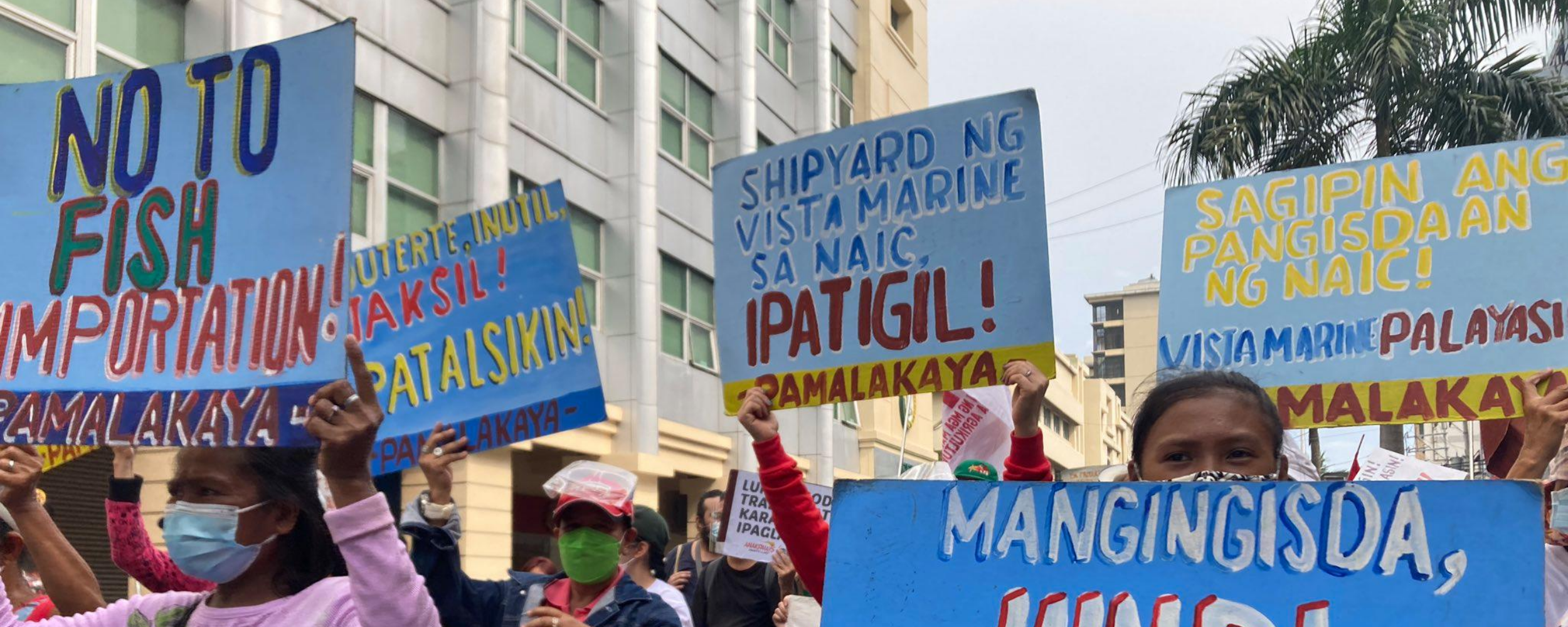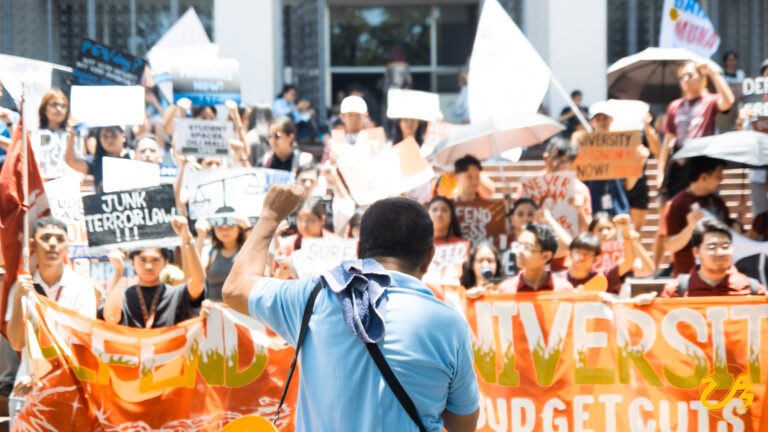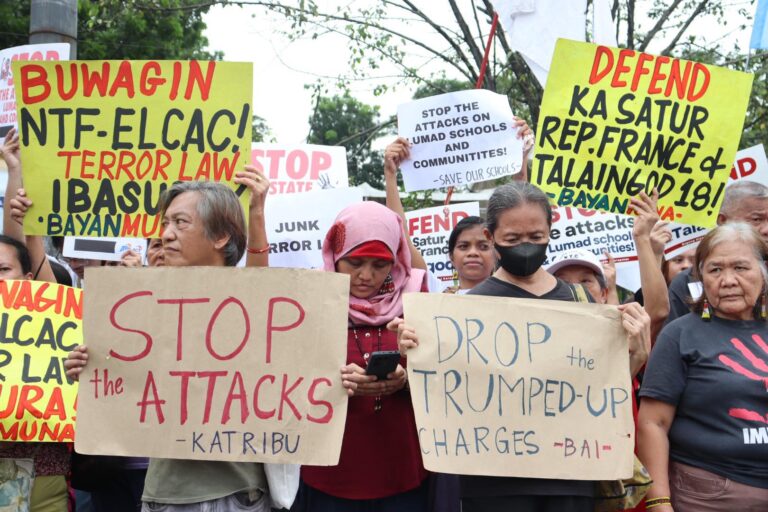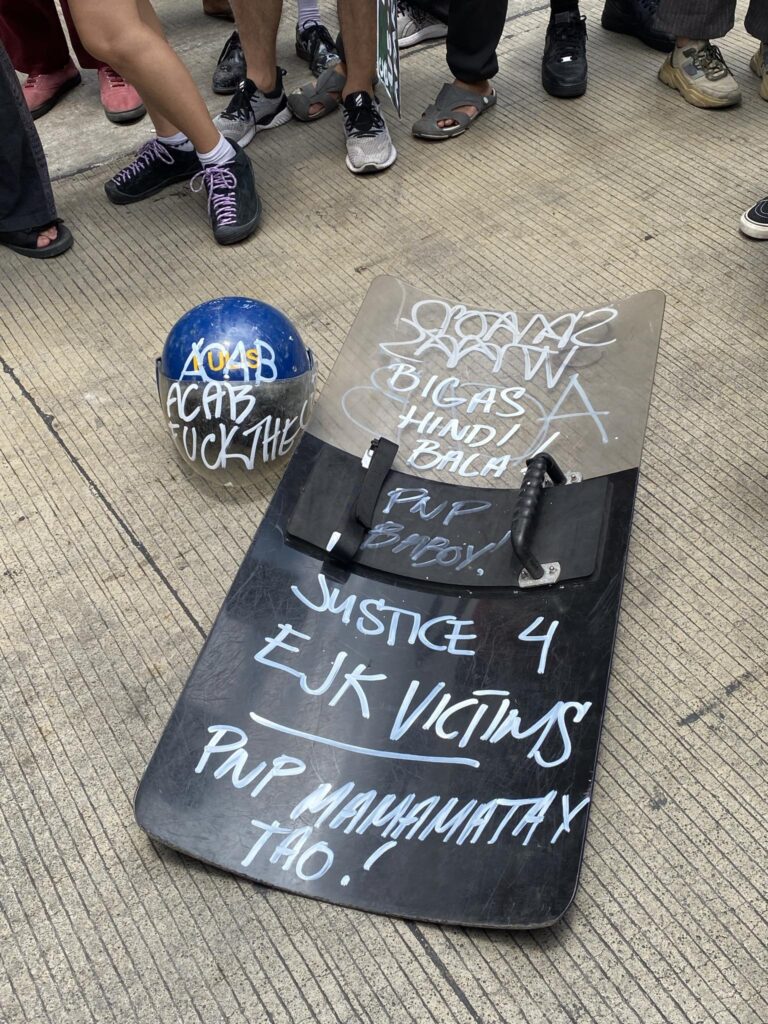
Over the past eight consecutive weeks, oil prices have incessantly increased, with the local jeepney drivers bearing the burden especially with their day-to-day expenses. Last October 19, the total net price per liter for unleaded gasoline increased up to P19.65, P18 for diesel, and P15.49 for kerosene.
Oil products increased by P1.80 per liter for gasoline, P1.50 per liter for diesel, and P1.30 per liter for kerosene.
As a result, oil prices shot up to as high as P79.80 for unleaded gasoline and P69.05 for diesel in Northern Luzon; P70.44 for unleaded gasoline and P50.17 for diesel in Metro Manila; P73.09 for unleaded gasoline and P61.27 for diesel in Southern Luzon; P73.96 for unleaded gasoline and P64.95 for diesel in Visayas; and P74.85 for unleaded gasoline and P70.65 for diesel in Mindanao.
According to Anakpawis Party-list president Ariel “Ka Ayik” Casilao, “umalagwa ang pagtaas ng presyo ng produktong langis dahil sa Oil Deregulation Law.”
Prices of consumer goods are also projected to increase. Contrary to the Philippine Statistics Authority’s (PSA) report on the easing of inflation rate, the bottom 30-percent income household retains an average inflation rate significantly higher than the headline rate.
Those of the working classes still have much to pay for to purchase their basic needs.
Pasang Masda president Obet Martin states they are “truly struggling” especially with earnings only worth around P200. Operating at a significant loss with increased oil prices, and half the allowed passenger capacity, transport groups are campaigning for a P3-hike on the minimum fare.
The Department of Transportation (DOTr), however, rejected the proposed fare hike in consideration of daily commuters who have only resumed their jobs. According to DOTr secretary Arthur Tugade, aid for drivers will be ensured and pushed for by the department while maintaining the balance between the needs of drivers and the capabilities of commuters amid the pandemic.
While Pasang Masda respects Tugade’s decision, they also seek that their plight be heeded as well.
On the other hand, fisherfolks have also been the most affected by the oil price increases, faced with consecutive livelihood crises and natural calamities. According to Pamalakaya-Luzon vice chairperson Bobby Roldan, “[f]rom the regular 6 to 8 hours of fishing in a day, we need to cut it back to 4 to 6 hours because of expensive oil prices.”
The oil price hikes have largely increased a fisherman’s expenditure up to P420 for 10 liters of gasoline for a trip, accounting for a staggering 80% of the fishing costs. This led the fisherfolk to resort to reducing their fishing activities to mitigate losses from their already small income.
The Department of Agriculture (DA) has increased fish importation, specifically galunggong and bonito, to ease food inflation amid the lack of local fish supply. They recently imported 60,000 metric tons of both galunggong and bonito.
According to Agriculture secretary William Dar, importing fish would ease “the pressure on food inflation, thus benefiting mostly our poor countrymen whose purchasing power has been reduced due to the economic slowdown and the COVID-19 pandemic”. However, the fishermen who are already at a loss, face tougher competition.
Pamalakaya previously initiated a campaign on helping consumers differentiate the local, fresh galunggong from the imported. Additionally, Pamalakaya national chairman Fernando Hicap raises the campaign as a platform to demand support and to strengthen the local fisheries.
Anakpawis Party-list, alongside other sectoral groups, strongly urge incumbent legislative candidates to urgently pass a legislative measure for price control over oil products. Where the Oil Deregulation Law has allowed market forces to work in the business, oil prices have been uncontrollably high. According to Casilao, “dapat itong putulan ng sungay sa pamamagitan ng legislative enactment.”
According to the sectoral groups, nothing is to be expected from the Duterte administration in maintaining oil prices manageable and accessible in the country. Increased oil prices are attributed to the excise tax, ranging from Php 8 to Php 10 per liter, imposed on oil products by the TRAIN law. This comprises the P131 billion of the government’s budget.
“Mismong ang gubyerno ang malaking nakikinabang sa paghihirap ng maralitang mamamayan,” Casilao added.
On the other hand, the Makabayan bloc has previously filed a bill in 2019 to remove the TRAIN law-imposed excise tax on oil products.
Sectoral groups continue to raise their demands on “pulling down the existing oil prices in the country,” while also calling for re-nationalizing Petron. They assert that incumbent lawmakers and candidates must also enact and support the bill proposed by the Makabayan Bloc.
“Huwag nilang unahin ang eleksyon, bagkus ang kagyat na interes ng malawak na mamamayan ngayon,” Casilao concluded.
Last October 21, Thursday, fisherfolk and peasant groups, alongside various sectors, demanded for land, aid, and justice joined the march in commemoration of Peasant Month this October. They also highlighted calls on the junking of the Anti-Terror Law and the reclamation of coastal communities.�
Featured image courtesy of Pamalakaya.







